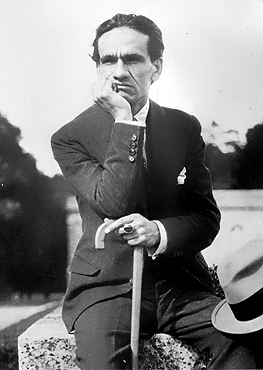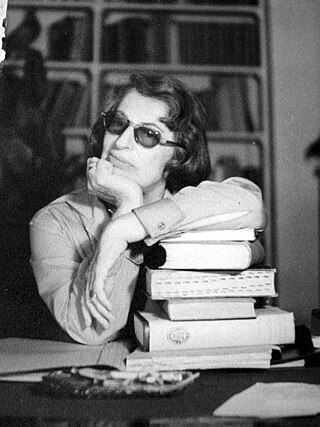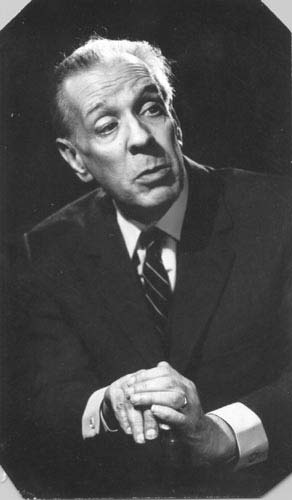
César Abraham Vallejo Mendoza was a Peruvian poet, writer, playwright, and journalist. Although he published only two books of poetry during his lifetime, he is considered one of the great poetic innovators of the 20th century in any language. He was always a step ahead of literary currents, and each of his books was distinct from the others, and, in its own sense, revolutionary. Thomas Merton called him "the greatest universal poet since Dante". The late British poet, critic and biographer Martin Seymour-Smith, a leading authority on world literature, called Vallejo "the greatest twentieth-century poet in any language." He was a member of the intellectual community called North Group formed in the Peruvian north coastal city of Trujillo.

Deià is a municipality and small coastal village in the Serra de Tramuntana, which forms the northern ridge of the Spanish island of Mallorca. It is located about 16 kilometres (10 mi) north of Valldemossa, and it is known for its literary and musical residents. Its idyllic landscape, orange and olive groves on steep cliffs overlooking the Mediterranean, served as a draw for German, English, and American expatriates after the First World War.

Mario Benedetti Farrugia, was a Uruguayan journalist, novelist, and poet and an integral member of the Generación del 45. Despite publishing more than 80 books and being published in twenty languages, he was not well known in the English-speaking world. In the Spanish-speaking world he is considered one of Latin America's most important writers of the latter half of the 20th century.

Julio Florencio Cortázar was an Argentine, naturalised French novelist, short story writer, essayist, and translator. Known as one of the founders of the Latin American Boom, Cortázar influenced an entire generation of Spanish-speaking readers and writers in America and Europe.

Silvina Ocampo was an Argentine short story writer, poet, and artist. Ocampo's friend and collaborator Jorge Luis Borges called Ocampo "one of the greatest poets in the Spanish language, whether on this side of the ocean or on the other." Her first book was Viaje olvidado (1937), translated as Forgotten Journey (2019), and her final piece was Las repeticiones, published posthumously in 2006.
Rosario Ferré Ramírez de Arellano was a Puerto Rican writer, poet, and essayist. Her father, Luis A. Ferré, was the third elected Governor of Puerto Rico and the founding father of the New Progressive Party of Puerto Rico. When her mother, Lorenza Ramírez de Arellano, died in 1970 during her father's term as governor, Rosario fulfilled the duties of First Lady until 1972.

Rosario Castellanos Figueroa was a Mexican poet and author. She was one of Mexico's most important literary voices in the last century. Throughout her life, she wrote eloquently about issues of cultural and gender oppression, and her work has influenced Mexican feminist theory and cultural studies. Though she died young, she opened the door of Mexican literature to women, and left a legacy that still resonates today.

This is a bibliography of works by Argentine short-story writer, essayist, poet, and translator Jorge Luis Borges (1899–1986).

'Flora' Alejandra Pizarnik was an Argentine poet. Her idiosyncratic and thematically introspective poetry has been considered "one of the most unusual bodies of work in Latin American literature", and has been recognized and celebrated for its fixation on "the limitation of language, silence, the body, night, the nature of intimacy, madness, [and] death".

Alfonsina Storni was an Swiss-Argentine poet and playwright of the modernist period.

Daína Chaviano is a Cuban-American writer of French and Asturian descent. She has lived in the United States since 1991.
Latin American literature consists of the oral and written literature of Latin America in several languages, particularly in Spanish, Portuguese, and the indigenous languages of the Americas. It rose to particular prominence globally during the second half of the 20th century, largely due to the international success of the style known as magical realism. As such, the region's literature is often associated solely with this style, with the 20th century literary movement known as Latin American Boom, and with its most famous exponent, Gabriel García Márquez. Latin American literature has a rich and complex tradition of literary production that dates back many centuries.
Clara Janés Nadal, born in Barcelona, is a Spanish writer of several literary genres. She is recognised as a poet and is distinguished as a translator of different central European and eastern languages. Since 2015, she has occupied a seat in the Real Academia Española [1], becoming the tenth woman elected as a member of the RAE.
The Xavier Villaurrutia Award is a prestigious literary prize given in Mexico, to a Latin American writer published in Mexico. Founded in 1955, it was named in memory of Xavier Villaurrutia.

Karina Galvez is an Ecuadorian American poet.

Jesse Lee Kercheval is an American poet, memoirist, translator, fiction writer and visual artist. She is an emeritus professor at the University of Wisconsin–Madison. She is the author of numerous books, notably Building Fiction, The Museum of Happiness, Space and Underground Women, and she is a translator of Uruguayan poetry.
Justo Jorge Padrón was a Spanish poet, essayist, and translator. His work has been described as confirming "[t]he strength of modern Canarian poetry".

Jomí García Ascot was a poet, essayist, filmmaker, director and educator. Born in Tunisia, he was a Spanish exile who lived in Mexico.

Elvira Sastre Sanz is a Spanish writer, poet, philologist, and literary translator.
Cristina Lacasa (1929–2011) was a Spanish poet and short story writer. She was considered an important figure among contemporary Spanish poets.















